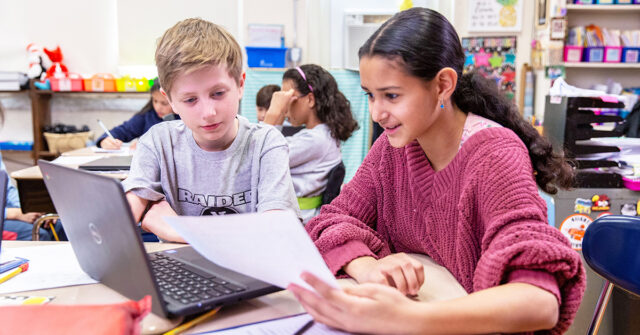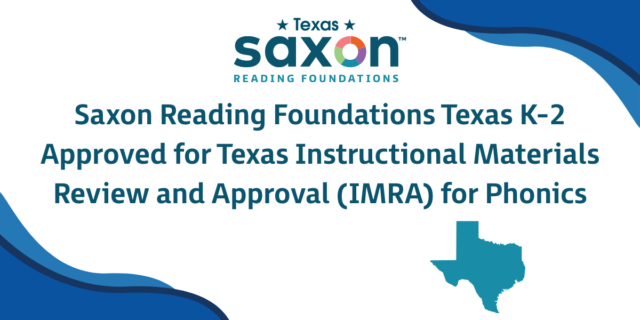
Towards a Practice of Freedom: Previewing this year’s Institute for Racial Equity in Literacy
by Dr. Sonja Cherry-Paul and Tricia Ebarvia
What does a classroom, a school, or even a society, that is actively and deeply engaged in freedom look like? As bell hooks reminds us, when we push against and beyond boundaries, we get closer to the practice of freedom.
In the summer of 2019, more than seventy educators gathered from across the country and globe in the small New England town of Durham, New Hampshire. What brought them together was their deep commitment to justice and their understanding that as educators, literacy was an important and necessary tool for liberation.
Thus began the inaugural Institute for Racial Equity in Literacy (IREL).
When we, Dr. Sonja Cherry-Paul and Tricia Ebarvia, began imagining what IREL could be, we knew we wanted a space where teachers could take the necessary time to reflect deeply on their practices and work for transformative change in their classrooms, schools, and communities. Last year, when the pandemic hit, we moved the IREL experience online—and more than 600 educators gathered together for two one-week institutes: 1) Interrogating Internalized Racism in Ourselves and Our Practices, and 2) Understanding Systemic Racism: Society, Schools, and Classrooms.
One aphorism that researchers believe is of African origin, as it embodies the spirit of many African cultures, is “If you want to go fast, go alone. If you want to go far, go together.” We have always envisioned IREL as space where we go together in order to go far. This summer, we look forward to offering both of these virtual institutes again—and we hope you’ll join us as we go far together.
As we enter our third summer of IREL, we bring with us important lessons that we’ve learned as teacher-leaders in this experience. We hope that those joining us for a second (or even third!) time for IREL will continue to be challenged and grow from the revisions we’ve made to this year’s program.
Whether you are joining us for the first time or third, we can’t wait to learn together with you. Continue reading below for additional information, and if you have other questions, please don’t hesitate to reach out to workshops@heinemann.com.
Below you will find a livestream event recording from Thursday, April 8th, 2021 where Tricia Ebarvia and Dr. Sonja Cherry-Paul discuss finding your why for this work, and give a preview of what #IREL21 will be like this summer. Registration is open!
What is IREL?
The Institute for Racial Equity is a week-long professional development experience for all educators interested in examining the intersections of literacy and racial equity. As with last year, there will be two one-week institutes this summer, each with a different focus: 1) Interrogating Internalized Racism in Ourselves and Our Practices, and 2) Understanding Systemic Racism: Society, Schools, and Classrooms. Participants may enroll in one institute or both.
What is the difference between the two institutes offered?
The fight for racial equity and justice must be two fold: as educators, we must be willing to examine our own biases and practices, but we must also be willing to challenge the systems around us that perpetuate injustice. With this in mind, IREL offers two institutes with these focuses:
Interrogating Internalized Racism in Ourselves and in Our Practice (July 12-16)
- Racism is pervasive; no one is unaffected. This week will focus on the ways in which racism lives in all of us. By identifying our own personal relationships with race and racism, we can then disrupt and dismantle the ways that our literacy practices may harm students and work towards a liberatory personal and professional approach to learning.
Understanding Systemic Racism: Society, Schools, and Classrooms (August 2-6)
- This week will focus on the ways in which racism has been embedded throughout history and in every societal institution, including schools. We will unpack how racism has become institutionalized, with a specific lens towards literacy practices, including curriculum and instruction.
What can I expect during the institute?
Each institute is a week full of interactive multimedia content and engagement. Throughout the week, participants will engage in a flexible combination of live and self-paced opportunities for participation, with session recordings and materials available for 30 days. During the week, participants can expect to:
- Develop an understanding of critical race theory, racial identity development, antiracist pedagogy, culturally relevant and sustaining pedagogies — and the implications for teaching students
- Listen to podcasts that address key concepts of the institute and respond to essential questions
- Participate in live, interactive webinar sessions
- Engage in conversations with cohort members in order to make the learning immediate and specific to distinct contexts
- Learn and practice strategies to navigate conversations about race, racism, and antiracism social justice with colleagues and students
- Read a variety of texts by #ownvoices authors and consider how they can be used in the classroom
- Explore writing activities that can help students develop their voices in culturally sustaining ways
- Leave with a plan of action for how to interrupt racism personally and professionally
All activities will be hosted within the event’s dedicated online PD platform. Participants will also be grouped into smaller learning cohorts, led by experienced literacy leaders who will facilitate discussions throughout the week. A more detailed overview of each week is available below.
Who should attend IREL?
While IREL is focused primarily on literacy, all educators are welcome as antiracist work spans all disciplines and subject areas. In the past, participants included K-12 classroom teachers, instructional coaches, administrators, district leaders, teacher educators, authors, and equity teams.
How will this institute meet the needs of educators of color?
As a Black woman (Sonja) and Asian American woman (Tricia), we understand what it is like when professional development experiences do not differentiate for the particular needs or honor the voices and experiences of educators of color. Throughout the week, we have built in opportunities for participants to gather in racial affinity group spaces as one opportunity to provide a space for educators of color to reflect and engage in learning.
Are scholarships available?
Yes! There will be a limited number of scholarships available. Additionally, if you are interested in sponsoring a fellow educator’s registration or donating a registration for educators who may have financial need, please email workshops@heinemann.com.
How can I help administrators understand the importance of attending this institute?
We have drafted a sample letter, accessible via the button below, that you may edit and personalize to share with your administrators. At the top of this post, you'll see a button leading to a brochure and registration form that can be used with a PO. Registration will be $129 per institute and is set by Heinemann to only cover cost.
Questions? Please contact workshops@heinemann.com.
♦♦♦♦♦
Dr. Sonja Cherry-Paul's research and work stem from an unyielding commitment to anti-bias and antiracist pedagogy and practices in K-12 schools. She is an educator, a curriculum developer and author of several books for teachers, and she has adapted Stamped For Kids. Sonja is the Director of Diversity and Equity at the Teachers College Reading and Writing Project (TCRWP) at Columbia University, the host of The Black Creators Series, and the Senior Advisor of the Heinemann Fellows. Connect with her @SonjaCherryPaul and sonjacherrypaul.com.
Tricia Ebarvia is a co-founder of #DisruptTexts and an advocate for literacy instruction rooted in equity and liberation through critical literacy. An educator with 20 years of experience, she teaches and serves as department chairperson at Conestoga High School in Berwyn, PA. Tricia serves on the advisory board for the West Chester Writing Project (NWP) as well as the Center for Antiracist Education (CARE). A 2016-2018 Heinemann Fellow, Tricia is the author of a forthcoming professional book on anti-bias literacy instruction. Follow her @triciaebarvia and at triciaebarvia.org.


